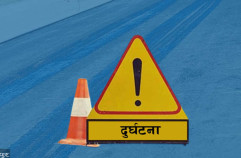We use Google Cloud Translation Services. Google requires we provide the following disclaimer relating to use of this service:
This service may contain translations powered by Google. Google disclaims all warranties related to the translations, expressed or implied, including any warranties of accuracy, reliability, and any implied warranties of merchantability, fitness for a particular purpose, and noninfringement.


A total of 150 megawatts of electricity is being imported from India while the country's largest Parsa-Bara industrial corridor is in crisis due to lack of electricity. Electricity Authority Load Dispatch Center Kalanki Sources said that only 120 to 150 MW of electricity is being received daily from the 132 KVA Raxaul-Parwanipur transmission line.


According to center sources, in recent days only 120 to 150 megawatts of electricity is being received from India through the Raxaul-Parwanipur transmission line. "It cannot be said with certainty that exactly this amount of electricity will be received," the source said on condition of anonymity, "Even in the same day, different amounts of electricity are received from India in the morning, evening and night."
Authority Birganj Distribution Center Chief Awadhesh Kumar Dubey informed that Birganj Distribution Center distributes electricity imported from India and indigenous electricity in Parsa-Bara district. "Importing electricity is the concern of the higher authorities," he said.
Dubey said that there is a total need of 300 megawatts of electricity in Parsa Bara, as there is currently only 200 megawatts of electricity available, even though 300 megawatts of electricity has been received, there is a lack of electricity of that magnitude. "The lack of electricity is an issue, but even if we get electricity equal to the demand, we don't have the structure to meet it," he said.
Dubey said that among the industries in the corridor, Jagdamba Steel is the industry that consumes the most electricity. This industry alone consumes 30 million units of electricity per month. Apart from this, Narayani Spat and Jagdamba Enterprises consume 1.1 million units per month.
Nepal purchases electricity from India after domestic production is insufficient during the dry season. Apart from Birgunj, currently electricity is being imported from India through Kataiya, Dhalkevar, Parasi, Rupandehi, Tanakpur, Nepalgunj.
Industrialists are worried about the ongoing unannounced loadshedding in Parsa Bara Industrial Corridor. The industrialists here complain that there is a problem in the operation of the industry as the authority cuts the power frequently without a pre-determined and scheduled schedule.
Hari Gautam, Senior Vice President of Birganj Industry and Commerce Association, says that there are unannounced power cuts for up to 8 hours daily. He said that due to unannounced load-shedding, the industry that produces iron products and the industry that uses boiler machines are the most affected due to sudden power cuts.
He said that in order to provide safe and reliable electricity, the authority needs to make extensive improvements and changes in its structure. "It is not appropriate to keep the area that consumes the most electricity in the country dark," he said.
Authority Birgunj distribution center head Dubey says that when the demand for electricity is high in the morning and evening, it is compulsory to provide electricity to customers on the consumer side by cutting it from the industrial corridor.
"The authority has a policy of giving priority to consumers on the consumer side," He said, 'In such a situation, regular electricity service will be provided to the residential customers even though the industrial sector has been reduced.'
Corridor industries have started to increase self-sufficiency in electricity . Seeing the possibility that the electricity crisis will not end in the corridor, Osibi Foods and Feed Pvt. Ltd. located in Parwanipur of the corridor is meeting its demand by producing electricity from rice husk at a low cost. This industry has been partially dependent on electricity for 4 years by producing electricity at a lower cost than the Nepal Electricity Authority.
The industry produces oil and sugar and this industry is producing 2 megawatts of electricity daily. Industry management claims that the cost of power production per unit of industry is 8 rupees and the authority is currently producing power at 12 rupees per unit. The director of the industry, Suresh Rungta, said that since 4 years, he has felt a lot of relief as he has been producing quality and cheaper electricity in the industry than the one supplied by the authority.
प्रकाशित : वैशाख १४, २०८१ १५:१३
 २८.१२°C काठमाडौं
२८.१२°C काठमाडौं

















